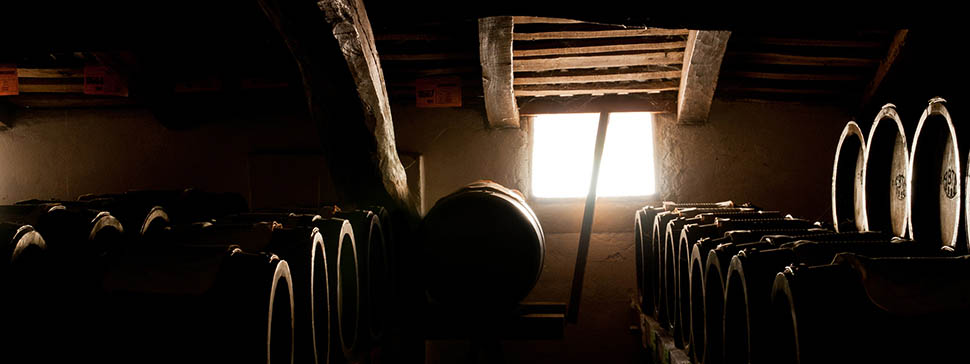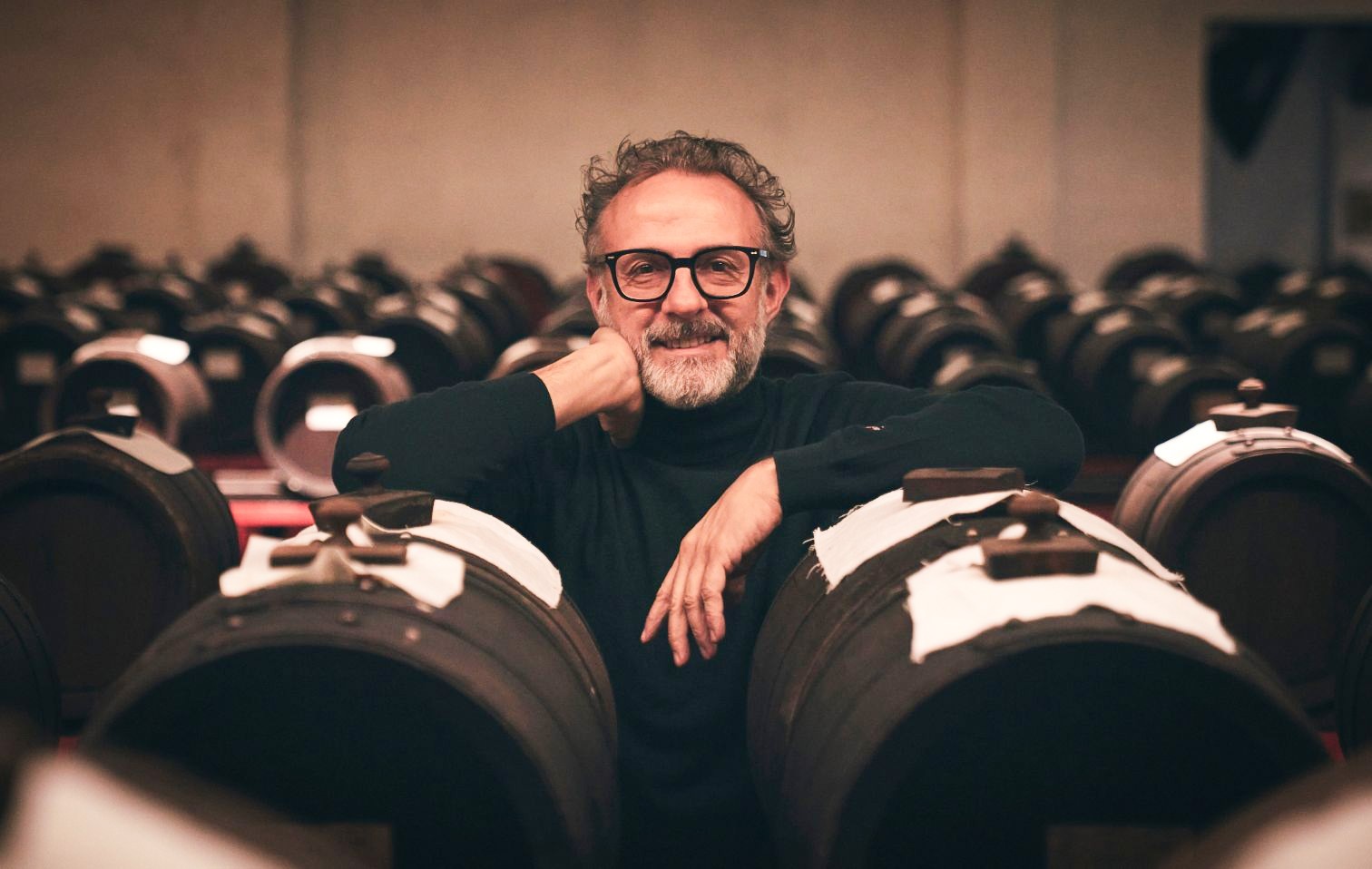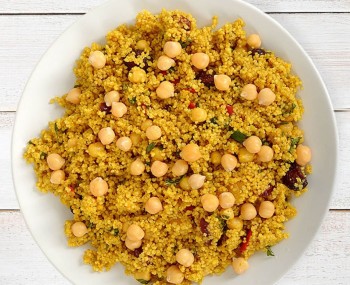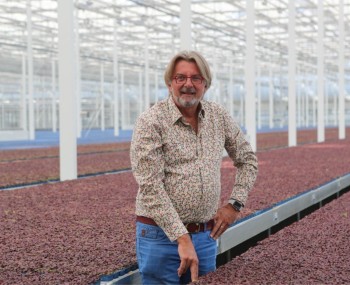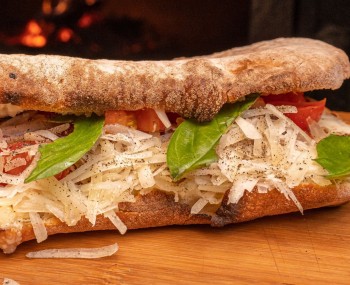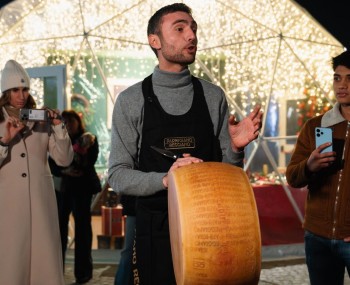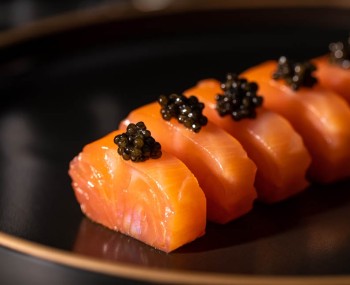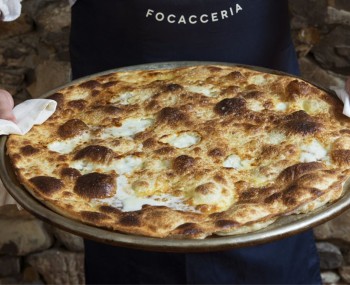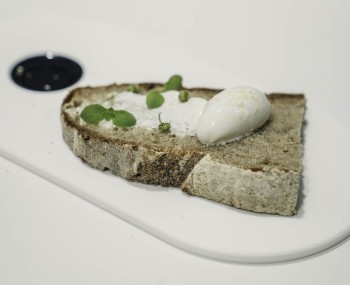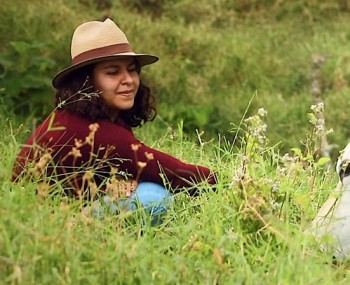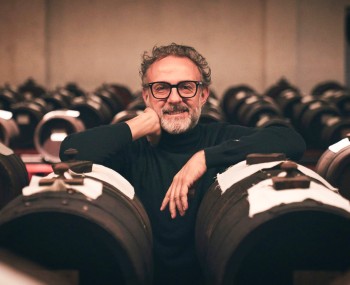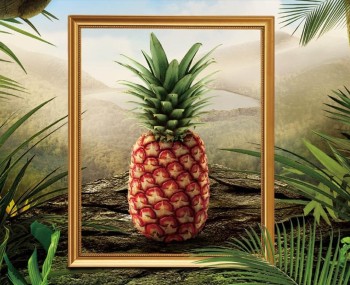At Casa Maria Luigia, in the middle of the Modena countryside, the Chef continues to cultivate his passion for the black gold of Modena, in a traditional way, while always searching for new paths.
The story
It was between the late 1960s and early 1970s when the first "Super Tuscans" were produced in Italy. This was the Tuscany of a group of enlightened winemakers who decided to break the mold and boldly step out of the regulations to follow a path of style and intuition. Today, however, we are in Emilia, more precisely in the Modena countryside, where the fog "can be cut with a knife" and envelops true gems of inestimable value and, above all, tradition.
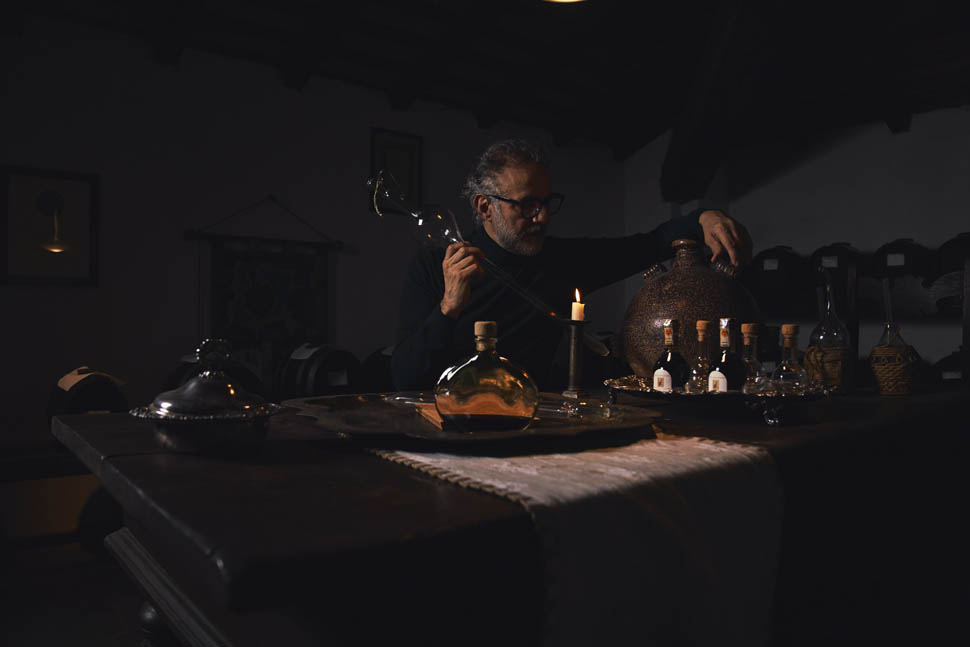
We are in the realm of handmade pasta, iconic tortellini, but also the "big red," sparkling Lambrusco, and much more. It is precisely here that today Massimo Bottura is cultivating what he loves to call his "spiritual heritage."
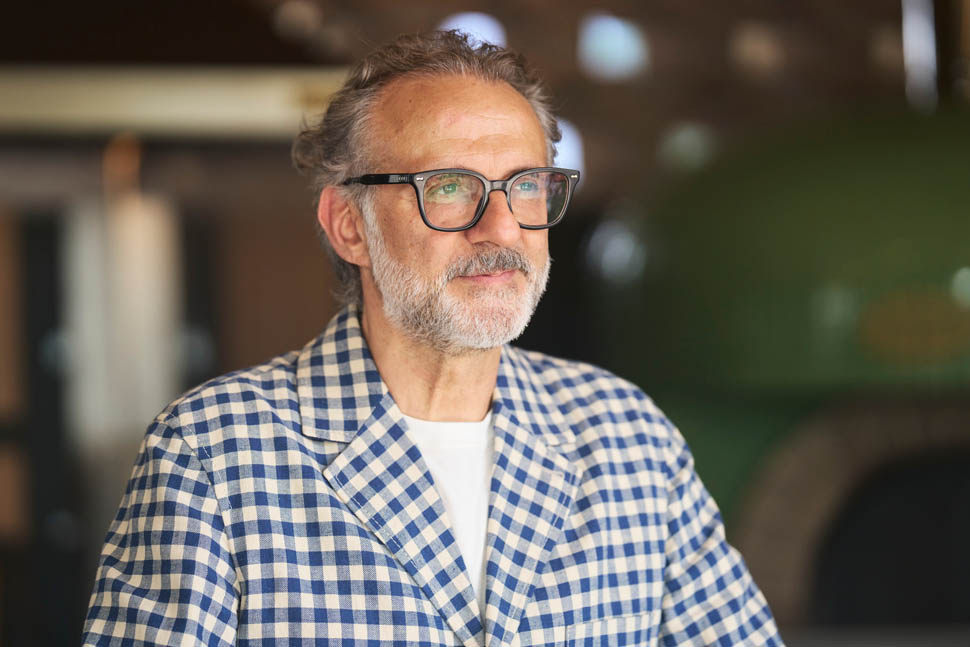
At Casa Maria Luigia ( (an 18th-century residence resulting from a meticulous restoration that combines, like a single recipe, the standards of perfection and free creativity), the magic of a territory with a long tradition takes place. It is the production of Modena's balsamic vinegar, marked by slow rhythms and a long wait, in the dim light of this Emilian residence.
The Vinegar Cellar at Casa Maria Luigia And The Products of Villa Manodori
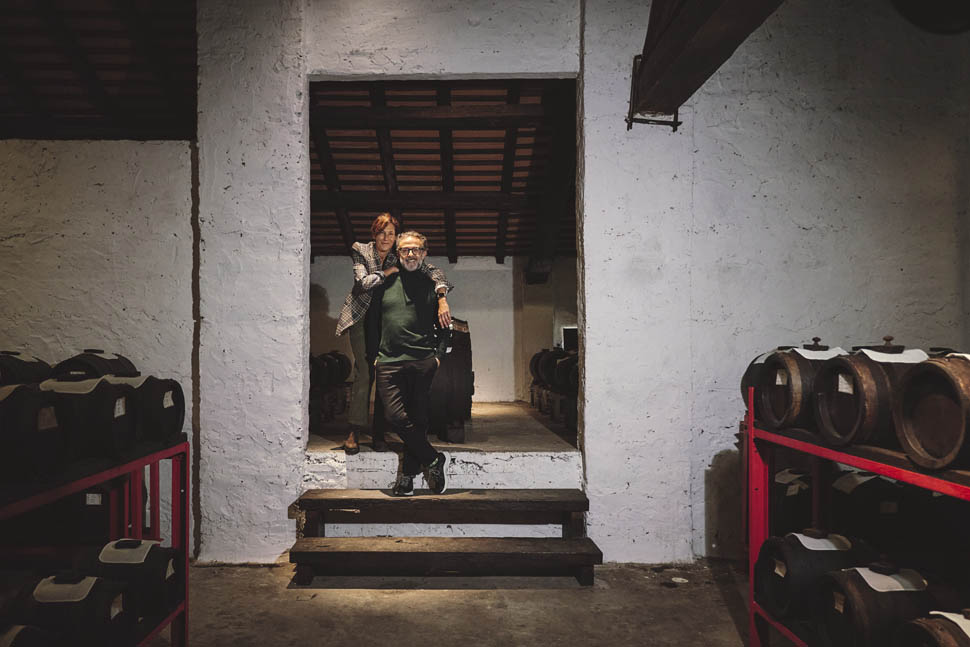
1995 is the year when "Osteria Francescana" opened, but also when Massimo Bottura began bottling his family's balsamic vinegar under the name "Villa Manodori." He started and never stopped. He began with the restoration of the barrels, and today his work continues in the vinegar cellar of "Casa Maria Luigia." A production that strictly follows the regulations for Traditional Balsamic Vinegar of Modena P.O.D and constitutes the majority of the production.
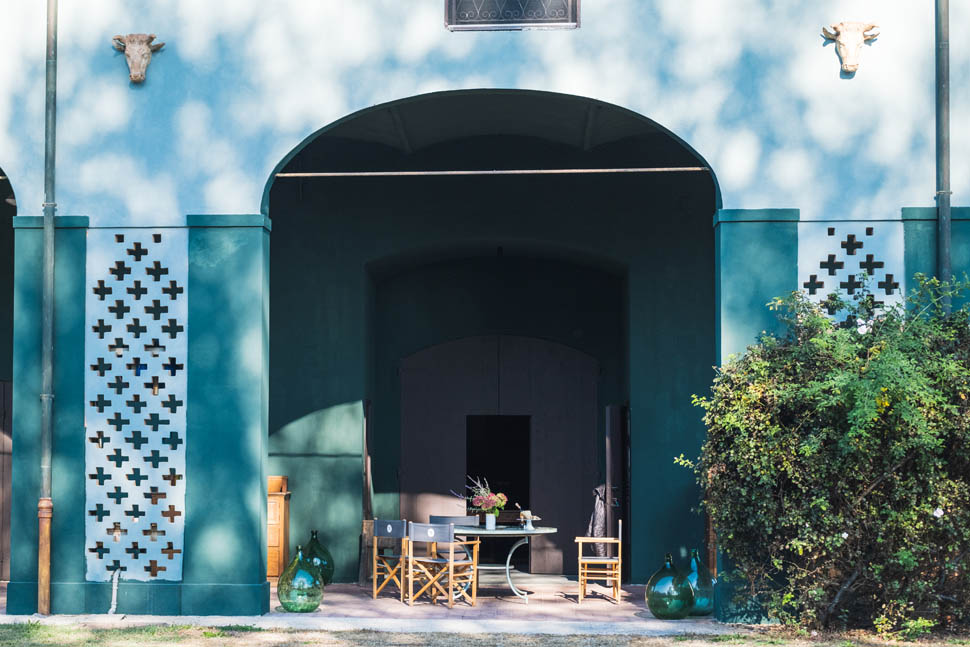
"The Emilia region has many stories to tell, but one of the most beautiful is that of one of its first sons, Balsamic Vinegar," Massimo Bottura loves to remind. "It is conceived among the cultivated vineyards of our gentle hills, born in the dim light of our vinegar cellars, then flows through our veins for a lifetime. It embodies a fundamental lesson: knowing how to grow slowly, cultivating patience as a virtue," says the Modena chef.
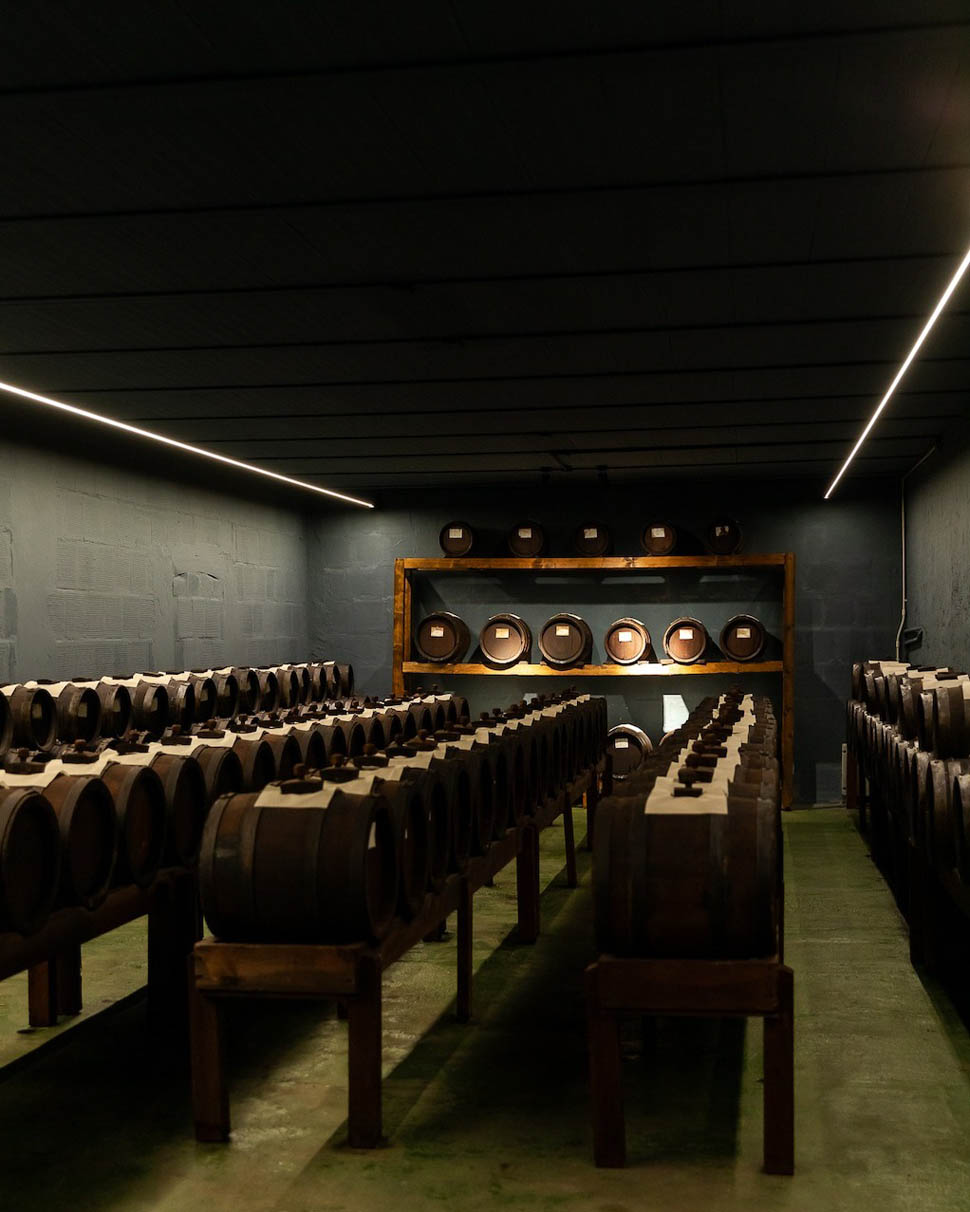
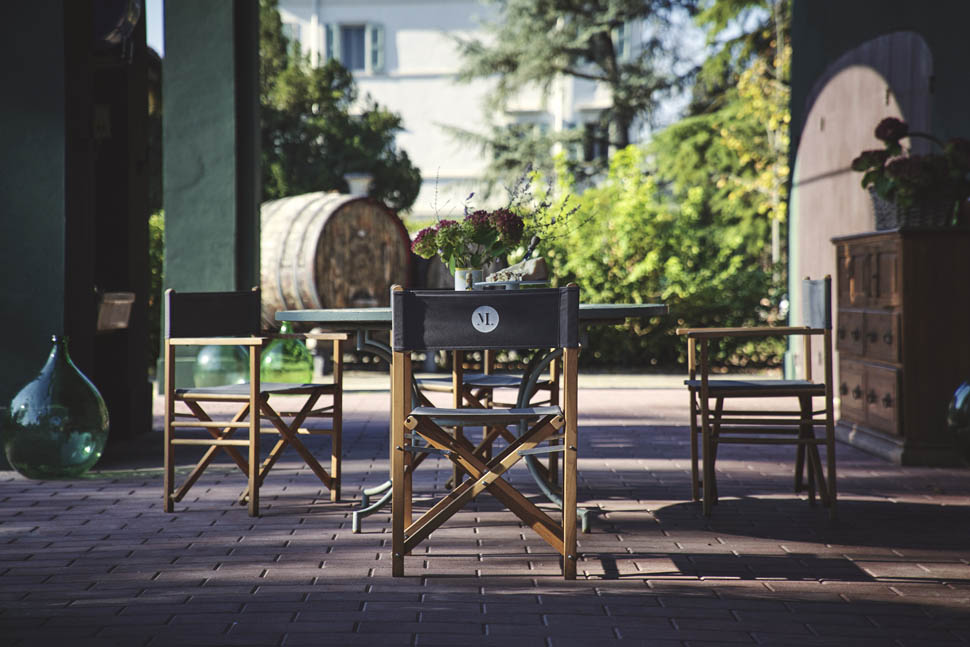
This precious vinegar, with a very slow and artisanal process, comes from a single ingredient: cooked must obtained by cooking the juice of the grapes. But when dealing with a personality like Massimo Bottura, one cannot fail to talk about desecration. It's the positive kind, the one that generates revolution and culture, as had happened with the Super Tuscans.
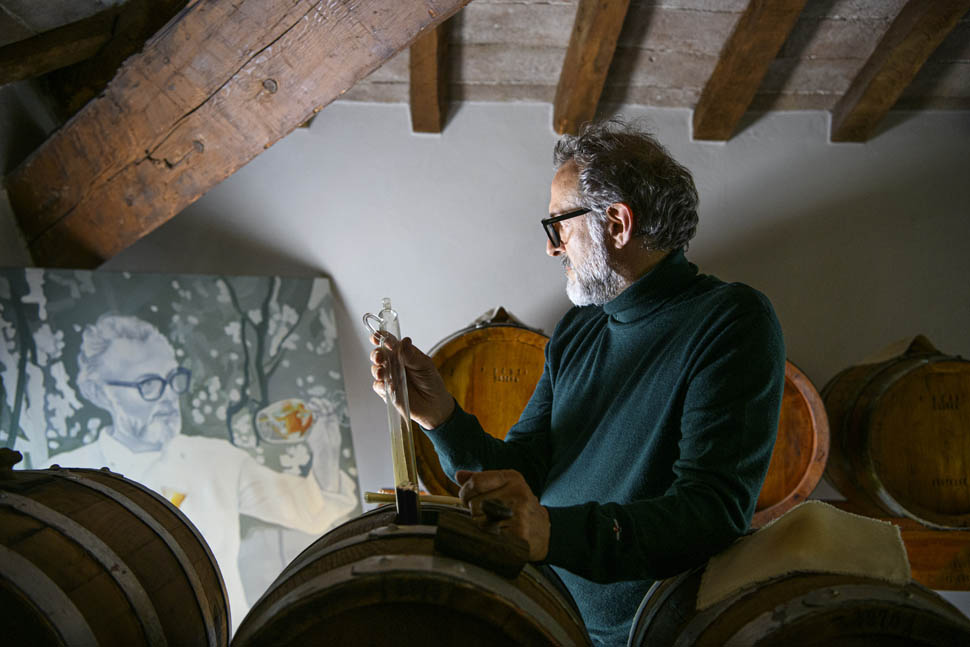
So we could even talk about "Disobedient Balsamic Vinegar" and focus on "Juniper" and "Cherry," which are two types of what are called "Balsamic Condiments." They are two editions that step out of the regulations, which Bottura defines as his "Crus." Juniper is a balsamic condiment characterized by the rich and complex aroma of precious wood. A selection of barrels from the vinegar cellar is infused with juniper from the Tuscan-Emilian Apennines, evoking notes of smoked wood, chocolate, coffee, and incense.
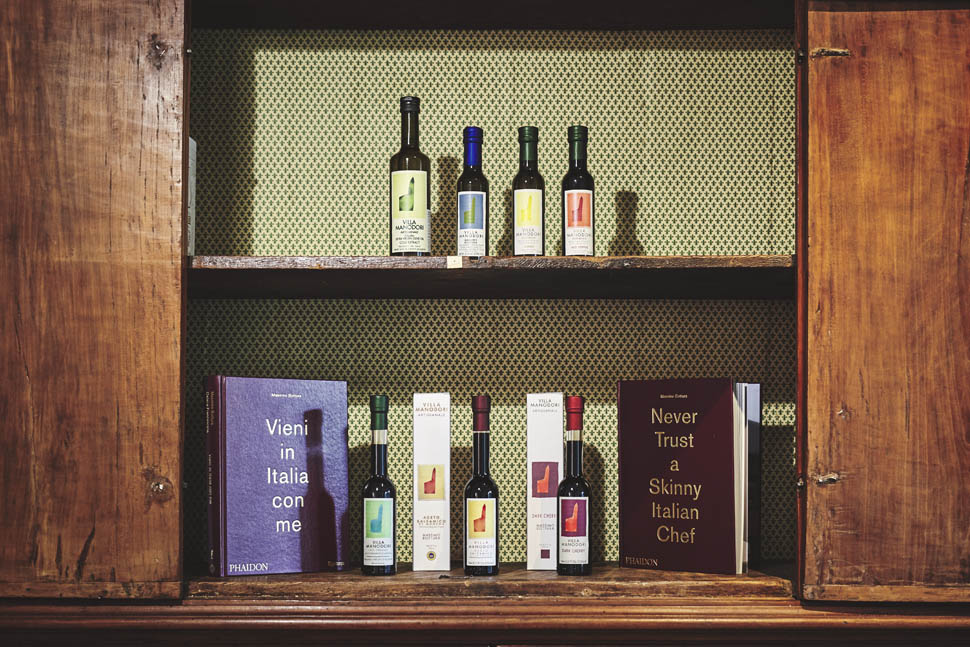
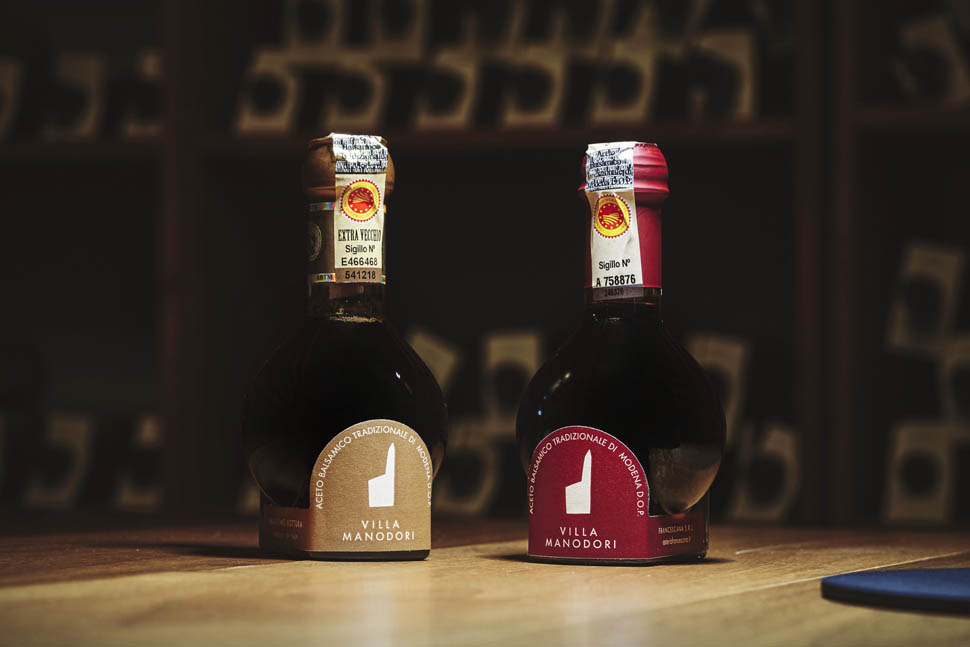
This recipe was inspired by the chef's grandmother, Ancella, who created her secret blend of balsamic vinegar, later gifted to friends and family. Cherry, on the other hand, follows the same processing method as Juniper, with the difference that for the latter, the infusion wood is cherry wood from the orchards of Vignola, a town famous for cherry production.
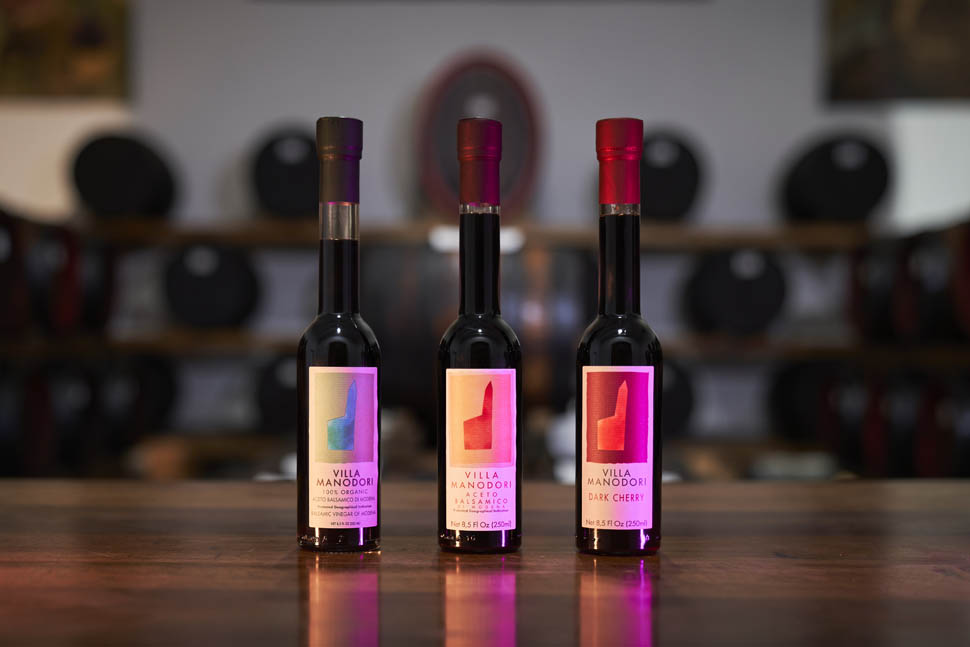
"We wanted to create these two Crus to explore new paths," says Bottura. "Balsamic vinegar, like everything else, starts by looking at the past in a critical and never nostalgic way, to then take the best from it. It is research, it is positive disobedience, it is nurturing doubt, it is investigating and investing in new energy. Disobeying is having the courage of revolution. But you have to be aware of the path you are taking. So, in my opinion, this idea of being brave and stepping out of the regulations, as well-known figures in the wine world have done, requires courage," he continues.
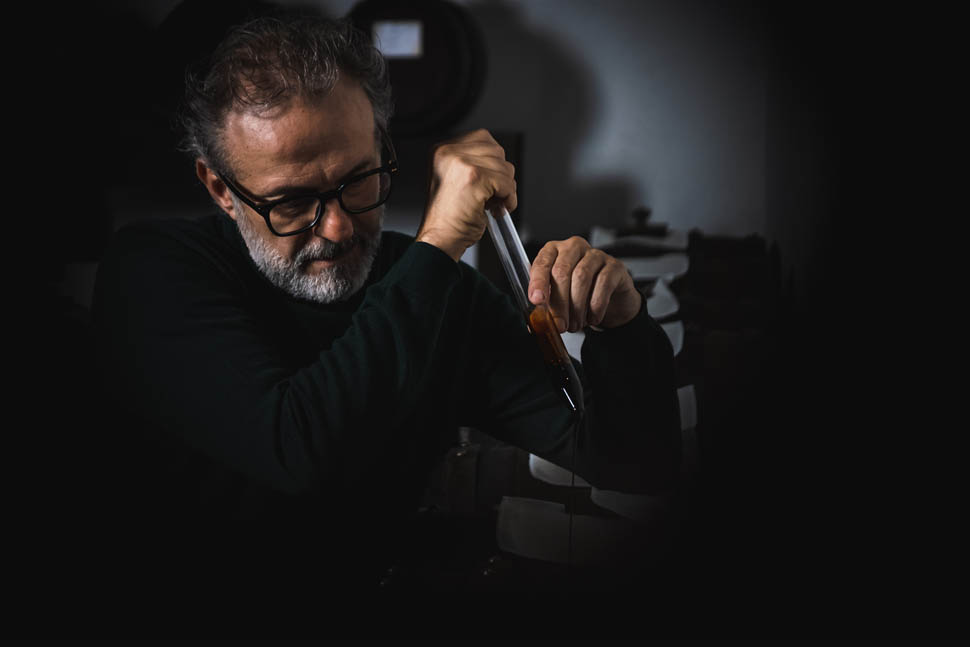
And again, he says: "For me, being able to achieve these aromas with 'Cherry', which evoke summer, berries, but also vanilla, becomes something truly unique. And the same happens with 'Juniper': here I smell incense, coffee, hazelnuts, toast. And it is precisely there that you make the difference: when everyone follows one path, you, through doubt, go looking for other paths to give yourself answers."
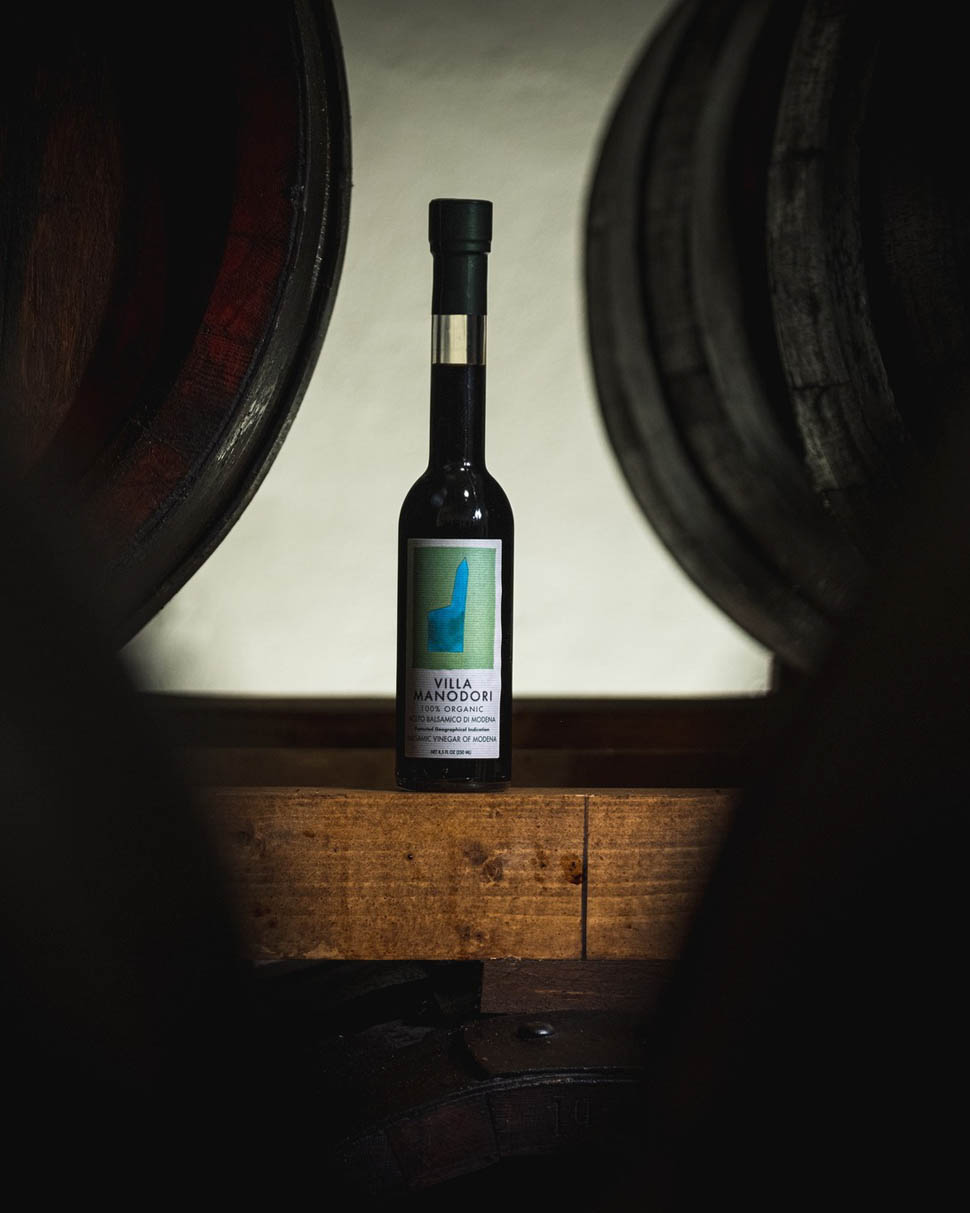
The renewed challenge for the chef is the balsamic vinegar produced at Casa Maria Luigia. "Casa" so that everyone can feel at home, and "Maria Luigia" like his mother, who always had the table extensions ready and the fridge full for unexpected guests. The search for new paths and then the obsession with quality are all elements that led him to have the courage to uproot the old vineyards of Pignoletto and Lambrusco to plant a new vineyard exclusively of Trebbiano of Spain. It is the rarest of all, yields much less must, but, as Bottura likes to reiterate, "my philosophy has always been not about quantity, but quality, and this is what makes the difference over time. Believing in quality, having an obsession with quality." It is his mission.
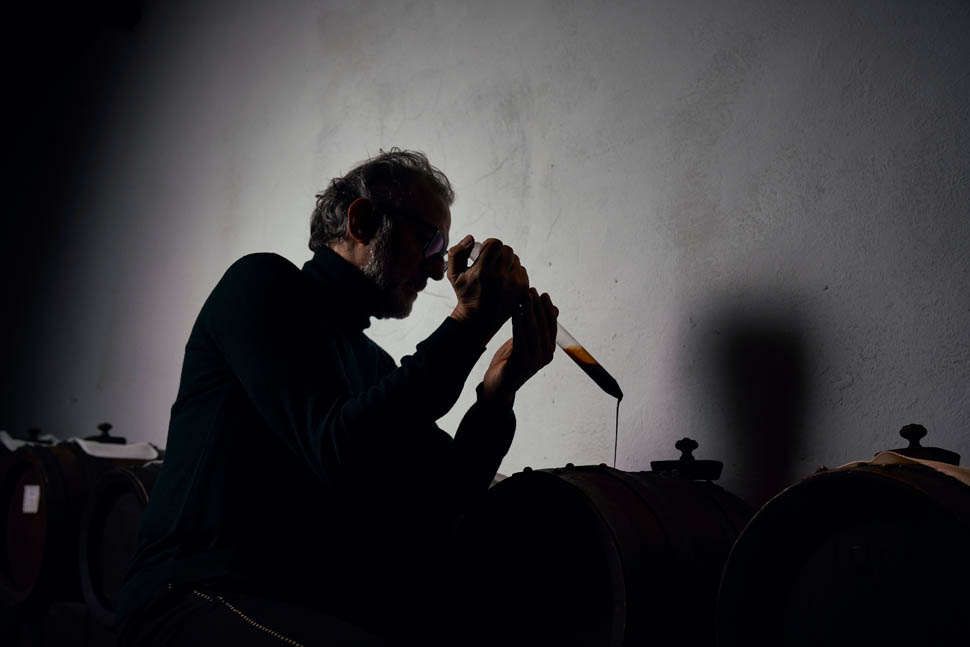
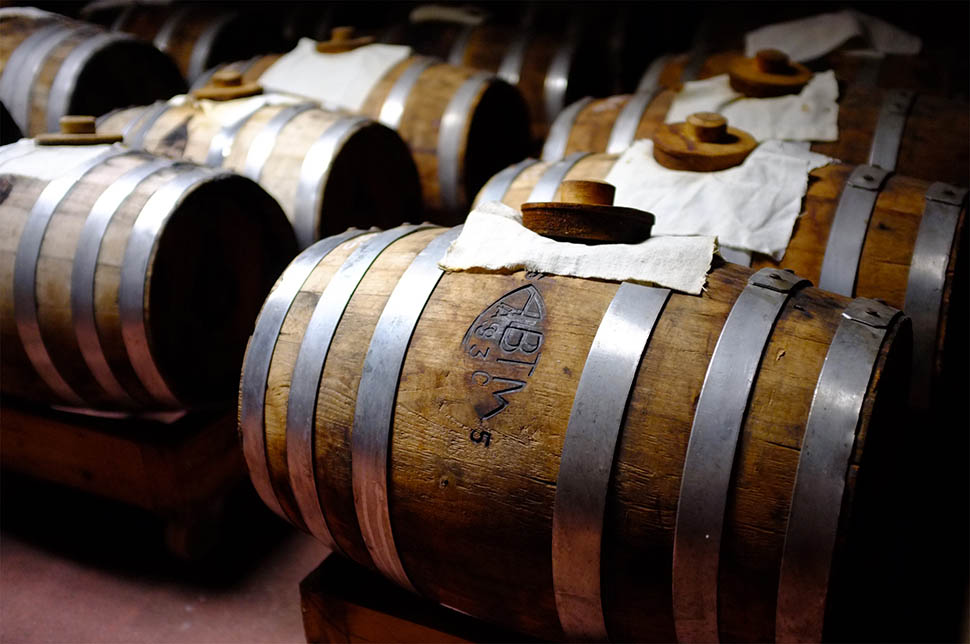
You need to "research," says Bottura. And it is precisely research and balsamic vinegar that cross the paths of the Modenese chef and the French colleague Alain Ducasse, who wanted to delve into everything there was to know about Modena's black gold. It was indeed the early 1990s when a friendship was born at the trattoria del Campazzo with Massimo Bottura, which still lasts today.
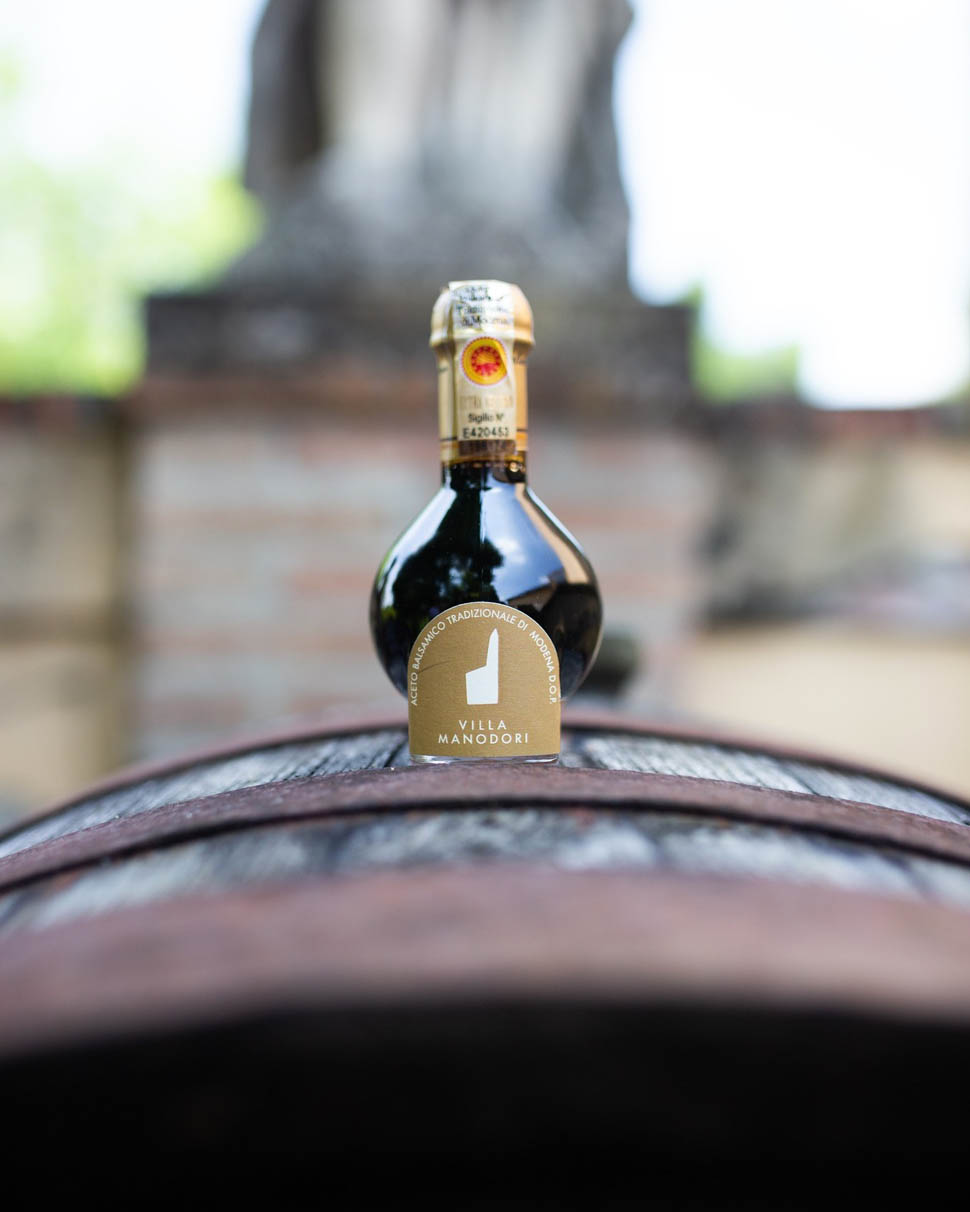
Art
There are as many as 1400 barrels in the vinegar cellar of Casa Maria Luigia, which have the fortune to coexist with artworks by illustrious artists. For the chef, art is inspiration. To create, he needs to surround himself with beauty. The proof is everywhere, in the various corners of the vinegar cellar where you come across the famous "Eye See You" by artist Olafur Eliasson, or the kinetic sculpture "Moving Objects" by Pe Lang, or the work "Moon" by Italian Davide Groppi, or "Fragil," a glass sculpture by Spaniard Joan Crous.
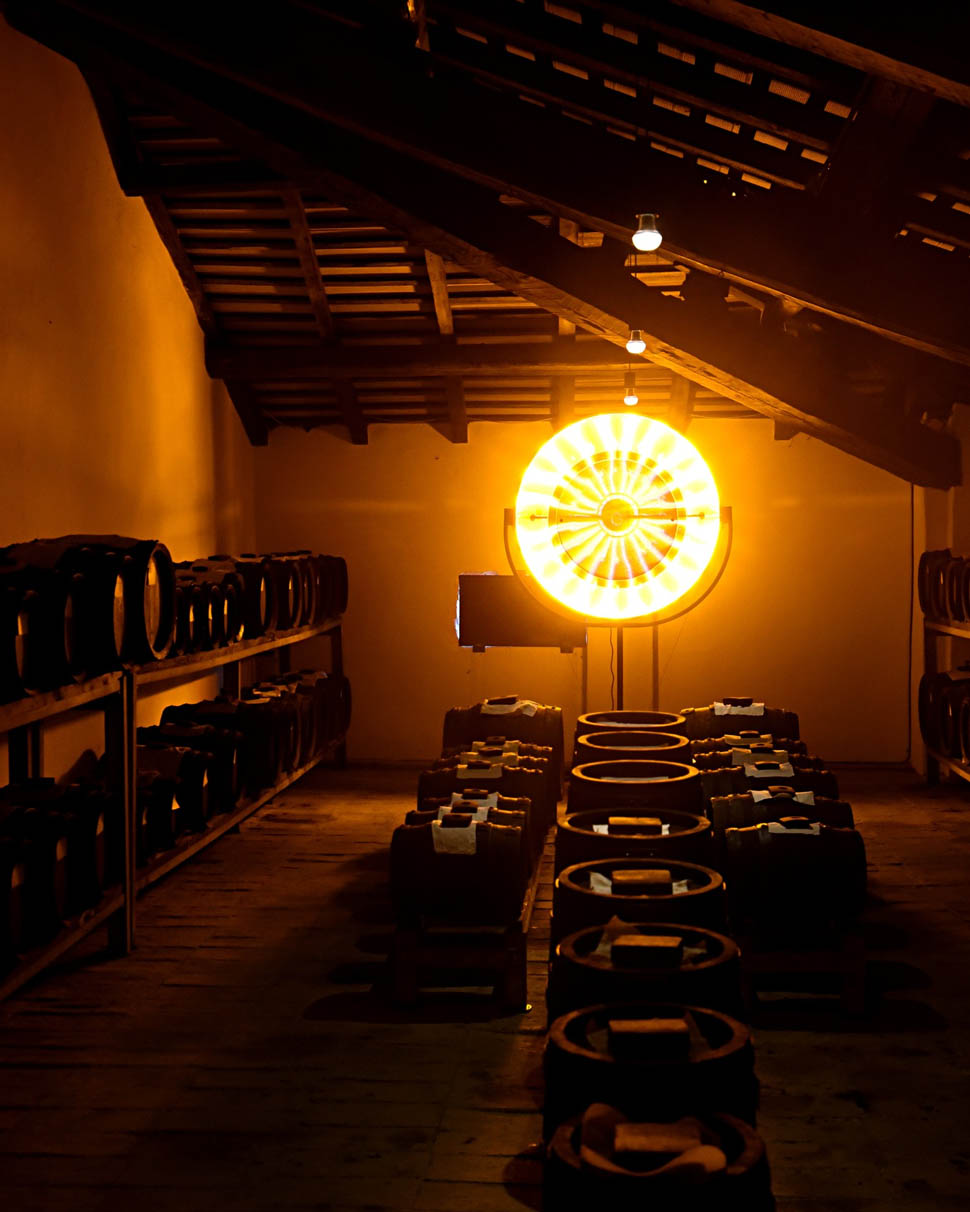
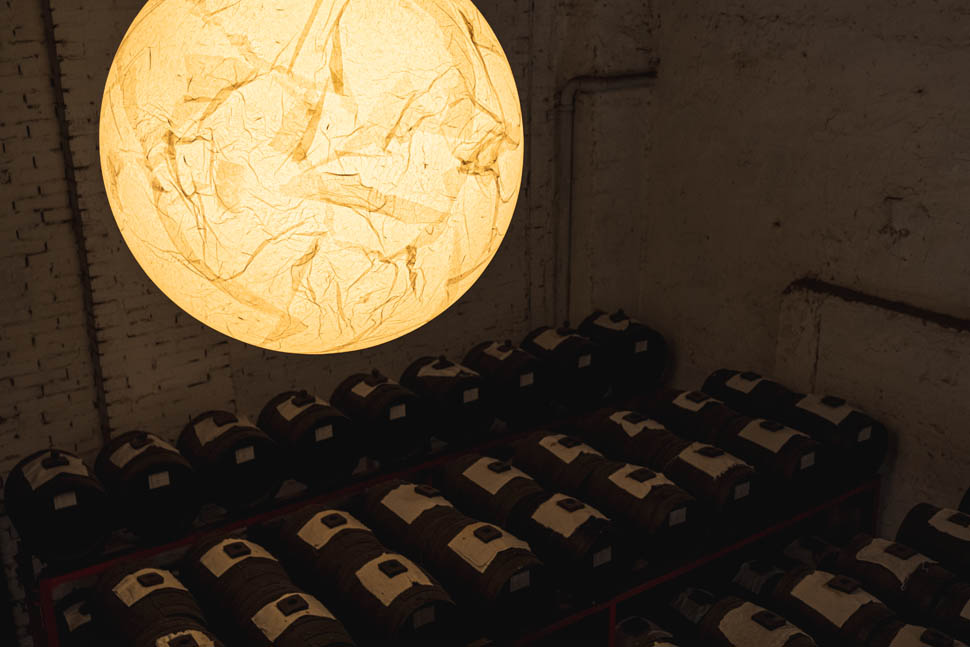
All this is the balsamic vinegar of Casa Maria Luigia: tradition, as in the case of Traditional Balsamic Vinegar of Modena D.O.P., disobedience and revolution as for the two "Cru."
Info
The Casa Maria Luigia website for booking visits to the vinegar cellar
